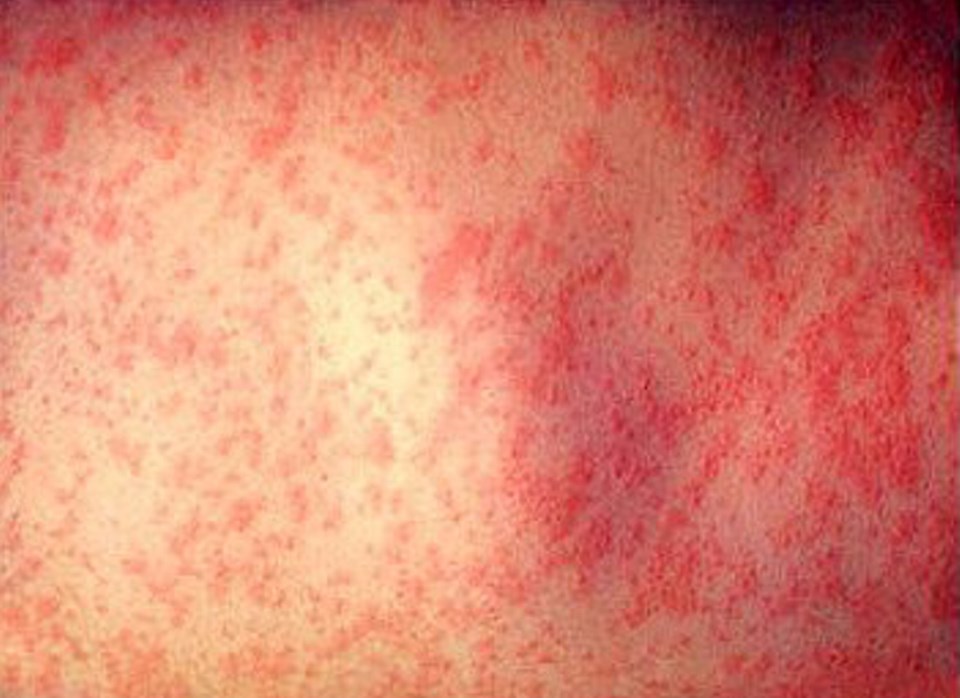A single case of measles in someone in an “education setting” in Nanaimo has been confirmed by Island Health.
Health officials wouldn’t specify the age of the person infected, the school they were at or when they were contagious, citing patient confidentiality. The case was confirmed through lab tests on Thursday morning.
“Anyone who has been in contact with this case has been identified and contacted, and we’ve had the opportunity to assess them for immunization and susceptibility and provide the appropriate interventions,” said Dr. Paul Hasselback, the Vancouver Island medical health officer, on Friday.
A person exposed to measles needs to be vaccinated within 72 hours in order to be protected against the virus, according to HealthLink B.C. Those exposed are being offered vaccinations to reduce the chance of infection.
“In this particular instance we can track the movements of the individual. … If there was any concern and we needed to share additional information, we would be doing that,” Hasselback said. He wouldn’t say how many people health officials had contacted, saying only that “dozens” would be a fair estimate.
The Public Health Agency of Canada says there is a higher than usual number of people with measles this year, with reported cases in British Columbia, Alberta, Saskatchewan, Manitoba and Ontario.
B.C. is experiencing its largest measles outbreak ever recorded, with 320 confirmed cases, mostly in the Fraser Valley. It began among a religious group that does not believe in vaccinations.
There is no known direct link between those cases and the Nanaimo case, officials say. People may also be exposed to the virus while travelling overseas or through contact with people who have travelled.
Measles is a rare disease in Canada because of the availability of immunizations to prevent it. The last confirmed case of measles on Vancouver Island was in January 2010, according to Island Health.
Coverage for the MMR (measles, mumps, rubella) vaccine in two year olds on Vancouver Island was 85 per cent in 2013. The central Island’s immunization rate is traditionally one to two percentage points below both the south and north Island, Hasselback said.
Island Health would not reveal whether the infected person had been immunized.
Measles is highly contagious. When an infected person breathes, coughs or sneezes, droplets can survive in the air for hours. An infected person is generally contagious five days before and four days after a rash appears, according to HealthLink B.C.
“This is a nasty illness,” Hasselback said. “Most notable is how sick one feels and looks.”
Symptoms include a fever, cough, runny nose and inflamed eyes. A rash follows and spreads from the face to limbs and lasts about three days.
In about one in every 1,000 cases, the measles can cause encephalitis — an inflammation of the brain — that can lead to seizures, hearing problems or brain damage. About one person in every 3,000 with measles may die from complications. That’s most common in infants less than a year old and in adults.
For more information, go to HealthLink B.C.
— With a file from The Canadian Press



